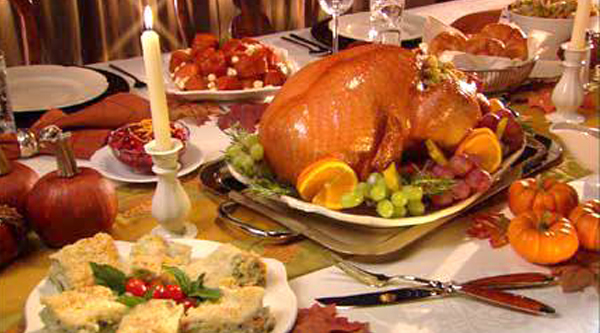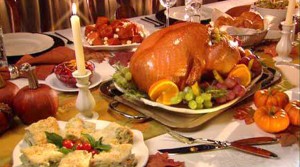Counting our blessings isn't always easy when the world around us seems to be in chaos. Yet it is often in the midst of chaos that we gain divine insight that makes our blessings even more vivid.
The first Thanksgiving in 1621 in Plymouth had its own share of chaos. When the Pilgrims first arrived, they adopted a socialistic economic system that pooled all crops and profits for common use. This system allowed each person to work the fields as they wished and take from the common stock what they wanted.
As Governor William Bradford later wrote, the Pilgrims went hungry in 1621 and 1622 because they would not work the fields to produce a harvest sufficient to sustain them throughout winter. Many died of starvation.
In 1623, Bradford abolished the socialist system for a free-market economic system. No longer would all crops grown and profits earned be pooled for the common use of everyone. Instead, each household was given a parcel of land and told whatever was produced on it was theirs to use as they saw fit: to be retained for their own consumption or to be traded with others for what their households had produced.
The results were spectacular. Writes Richard J. Maybury, quoting Gov. Bradford:
Suddenly, "instead of famine now God gave them plenty," Bradford wrote, "and the face of things was changed, to the rejoicing of the hearts of many, for which they blessed God." Thereafter, he wrote, "any general want or famine hat not been amongst them since to this day." In fact, in 1624, so much food was produced that the colonists were able to begin exporting corn.
The same socialism experiment failed spectacularly in the Jamestown colony.
Most of the work was being done by only one-fifth of the men, the other four-fifths choosing to be parasites. In the winter of 1609-10, called "The Starving Time," the population fell from 500 to 60.
Then the Jamestown colony was converted to a free market, and the results were every bit as dramatic as those at Plymouth. … [a]fter free markets were established, the resulting abundance was do dramatic that the annual Thanksgiving celebrations became common throughout the colonies…
In 1863 in "the midst of a civil war of unequaled magnitude and severity," President Abraham Lincoln issued the first national Proclamation setting aside the last Thursday in November "as a day of thanksgiving and praise to our beneficent Father who dwelleth in the heavens." In it he reminded the nation of the blessings apparent in our land despite the pain and suffering brought about by the war, and he called for prayers "to heal the wounds of the nation," recognizing that restoring "peace, harmony, tranquility, and union" to the nation would require divine mercy as much as human effort.
Today as we sit down at our Thanksgiving table, we, too, can thank God for the economic lessons learned in those early years and the free market system we still enjoy. We can also pray for divine mercy to intervene in the chaos of our world today.
We wish all a happy and blessed Thanksgiving.
For more on the early socialist experiments, see The Great Thanksgiving Hoax, by Richard J. Maybury.


